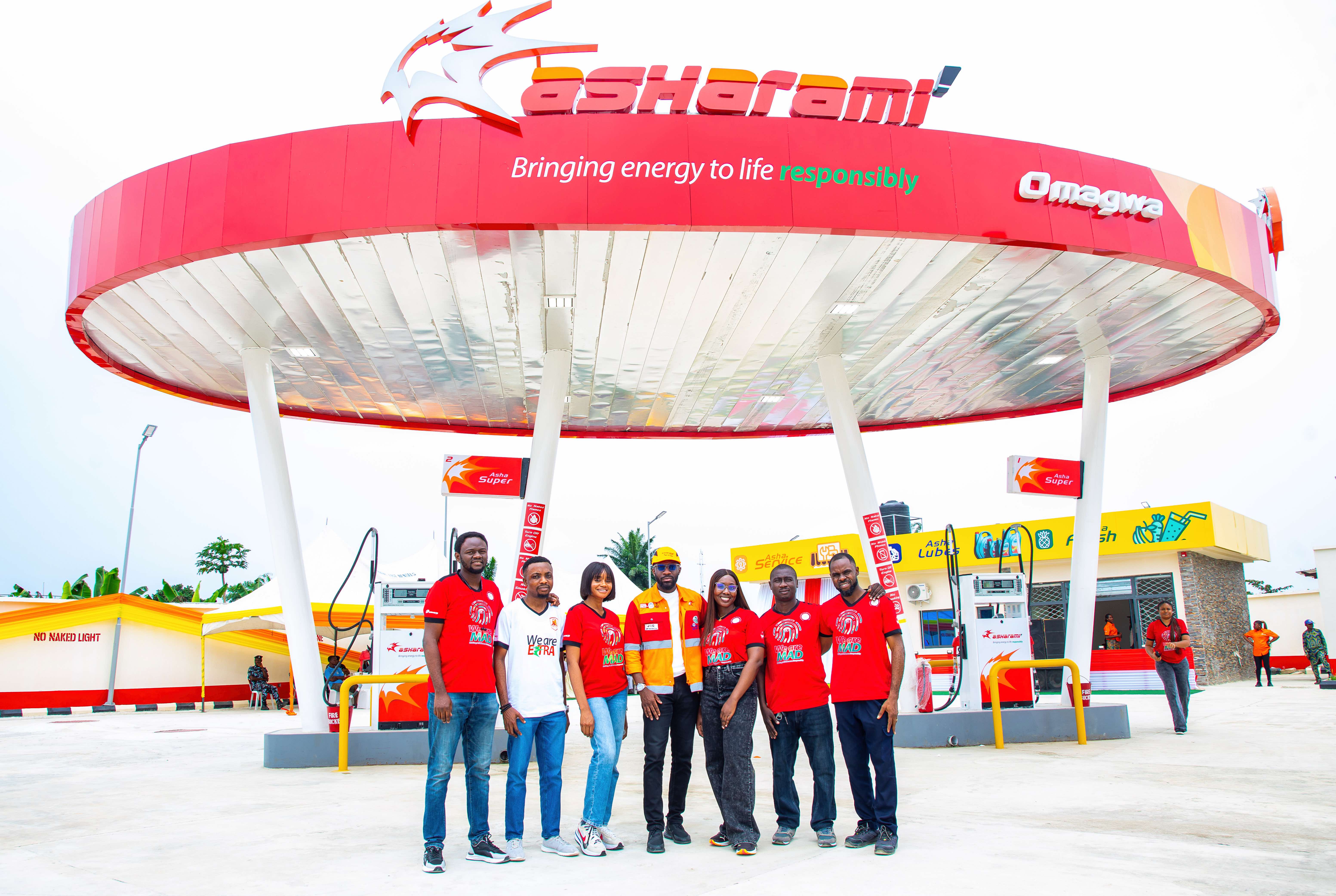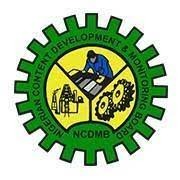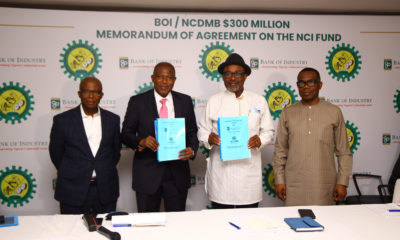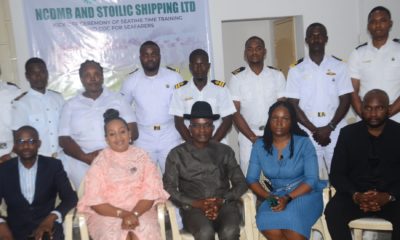Energy
NCDMB and Partners to complete 4 projects in Q4 2021

Modupe ASUDO
ABUJA– FOUR major projects being developed by investors in partnership with the Nigerian Content Development and Monitoring Board (NCDMB) would be completed before the end of 2021, the Executive Secretary NCDMB, Engr. Simbi Kesiye Wabote has disclosed.
The projects include the Rungas facility in Polaku, Bayelsa State that would manufacture 400,000 units of Composite LPG Cylinders per annum and BUNORR production plant in Port Harcourt, Rivers State, which would produce 48,000 litres of base oil per day.
The other two projects include NEDO Gas’ 80 million standard cubic feet per day gas processing facility upgrade and expansion, plus 300 million standard cubic feet per day KGG manifold in Delta State, and DUPORT Midstream Ltd’s Energy Park, which comprises 2,500 barrels of crude oil per day modular refinery, 40 million standard cubic feet per day gas processing plant and 2 megawatts power plant.
The Executive Secretary spoke on Thursday in Abuja at the one-day workshop on the “NCDMB Roadmap, A Catalyst for the Industrialization of Nigeria 2017-2027,” organised by the Reform Coordination and Service Improvement Department of the Ministry of Petroleum Resources.
He also said that five Liquified Petroleum Gas (LPG) storage/bottling plants and six LPG Depots being developed in partnership with Butane Energy Limited in 10 states in the North and Abuja would be completed in two phases – six in quarter 1 of 2022 and the rest in quarter 4 of 2022, with the opportunity to create 1,900 direct, indirect, and induced jobs.
Wabote also hinted that the Board was partnering with the Lagos Deep Offshore Logistics Base (LADOL) to develop a 24 megawatts power plant at Takwa Bay, Lagos State to provide uninterrupted power supply to the free zone which hosts key facilities required to service the oil and gas industry. The project is expected to generate 400 jobs.
According to him, the Board’s partnership investments cut across modular refineries, LPG value chain, and other areas. He stated that that the Board had 23 project sites spread across Abuja, Bayelsa, Bauchi, Delta, Edo, Gombe and Imo State. Other locations include, Jigawa, Kaduna, Katsina, Kano, Lagos, Nasarawa,Niger Plateau, Rivers, and Zamfara states.
The NCDMB boss explained that the Board committed equity investments into strategic projects that align with Government’s policies with a view to catalysing them to success and would exit once those businesses become successful. The investments were also in line with the Board’s vision “to be a catalyst for the industrialization of the Nigerian oil and gas industry and its linkage sectors,” he added.
Commenting on the functions of NCDMB and the Nigerian Content 10-year Strategic Roadmap, Wabote reported that the Board had recorded considerable progress with the implementation of the roadmap and had grown Nigerian Content from 26 percent to 35 percent within four years and was on track to achieve 70 percent by 2027.
On the US$350m Nigerian Content Intervention Fund, which provides affordable and accessible credit to qualified oil and gas companies, he described it as one of the most successful funding schemes in the country, hinting that the repayment rate by beneficiaries has been 99 percent.
In his comments, the Permanent Secretary, Ministry of Petroleum Resources, Dr. Nasir Sani Gwarzo lauded NCDMB for its achievements, adding that the Board was on the right trajectory in implementing it mandate and impacting linkage sectors. He charged the Executive Secretary to remain committed to the same trajectory of deepening Local Content implementation for the benefit of the economy and Nigerians.
He said the workshop was the first edition of enlightenment series conceived to educate personnel in the ministry on the operations of agencies under the ministry. He promised to deliver a report on the workshop to the Head of Service of the Federation and expressed hope that other ministries would inaugurate similar programmes and use them to build an informed and reformed civil service.
Energy
Asharami Synergy Unveils Fuelling Solutions In Omagwa

In line with its commitment to driving access to quality petroleum products, Asharami Synergy Limited, a leading Sahara Group downstream company, has said the public can now access exceptional fuelling solutions at its newly commissioned retail station in Omagwa, Rivers State.
Situated strategically along the Airport Road in Omagwa, the station, which features a storage capacity of 45,000 litres each for Automotive Gas Oil (AGO, also known as diesel) and Premium Motor Spirit (PMS, also known as petrol) is equipped with two pumps and four discharge nozzles for PMS and AGO.
The facility also has ample space for sundry services in a bid to ensure consumers get more “miles and smiles” as well as the energy to “go further” with Asharami’s world-class products.
“The Asharami Omagwa Retail Station is fully operational, offering a range of premium products and services. It’s a one-stop shop that also gives our esteemed customers eat-in and take-out restaurant services, shopping, as well as the Asha lubricants and Asha Service experience which will ensure premium care for all classes of automobiles and engines,” said Oladimeji Williams, Head, Government Relations and Business Development at Asharami Synergy.
ALSO READ: NNPCL Launches Utapate Crude Oil Blend, Eyes Production Expansion In 2025
At the Commissioning, Willaims said the new station represents an important step in Asharami Synergy’s expansion plan aimed at reaching and serving more communities responsibly. “This station is strategically positioned close to the airport, serving as the gateway for powering socio-economic development in the community and those close to it, while enabling Asharami Synergy integrate all aspects of its downstream business towards ensuring efficiency and value for our customers,” he stated.
Williams commended the Federal Airport Authority of Nigeria (FAAN) and the Omagwa community leaders for their support and collaboration throughout the project’s duration, describing it as a “seamless and productive process that highlights Asharami’s corporate stewardship and social impact” in the community.
Similarly, Ifesinachi Ezike, Regional General Manager (South South), FAAN, emphasized the broader significance of the new station, stating, “This occasion marks a significant milestone not just for Asharami Synergy but for the airport and the entire community. It marks not just an opening of a new facility but the beginning of a renewed commitment to enhancing the travel experience of all our passengers and stakeholders”.
In a move that underscores its commitment to sustainability and community development, Asharami Synergy also commissioned a solar-powered borehole during the launch. The borehole is set to improve access to clean and reliable water for residents, marking a tangible contribution to the local community.
“At Sahara, we are always making a difference—not just through our business operations; we are unwavering in our commitment to driving sustainable development and building partnerships that enhance the well-being of our host communities,” Williams added.
Energy
Awards Galore For Shell, Staff At NAPE 2024 Conference

The Shell companies in Nigeria and staff won awards in recognition of their robust participation at the 42nd Annual International Conference and Exhibition of the National Association of Petroleum Explorationists (NAPE), held in Lagos.
At the closing dinner of the event, the Managing Director of Shell Nigeria Exploration and Production Company (SNEPCo), Ronald Adams pledged sustained efforts by the company to address “the Nigerian energy trilemma by powering progress towards energy security in a sustainable manner”.
On the awards, the Shell was declared Best Overall Exhibitor and Best Exhibiting Energy company (International) just as Geophysicist Somime Oguntola took home the Award of Excellence for Oral Paper (second place).
The icing on the cake was a Shell staff, Johnbosco Uche, being installed as the new President of the NAPE.
It was gathered that the Shell companies in Nigeria have supported NAPE since its founding in 1975, using the skills and expertise of the large pool of energy professionals in its employment to improve its activities especially educational and mentoring programmes.
In addition to being a major sponsor of the 2024 conference, Shell mounted a high-profile exhibition, featuring among other things, career counselling, engagements on Nigerian Content and Contractor development and panel sessions on Women in Industry and Sustainability Energy Challenge.
A highlight was the Shell medical stand which attended to more than more than 500 conference participants and members of the public over the four days of the annual event. The doctors and nurses offered a wide range of services including laboratory tests, deworming, medical consultation as well as ophthalmology checks and distribution of nearly 300 eyeglasses.
Adams referred to the operations of SNEPCo as an example of Shell’s contribution to energy security in Nigeria. “As a result of sustained production from Bonga, we have provided funds to finance development, created a new generation of Nigerian Deepwater professionals, empowered indigenous contractors and service providers, and implemented social investments that have touched lives in the six geo-political zones of the country,” he said.
Adams added, “SNEPCo and indeed Shell are in Nigeria for the long haul. Our commitment is reflected in both our current and growth plans, all of which are grounded in principles of safety, affordability, and competitive performance.”
Energy
Accugas Denies Culpability In Akwa Ibom’s Power Outage

Owing to the persistent power outage, which has crippled economic and social life in most parts of Akwa Ibom State and environs, Accugas Limited has washed its hands off the ugly situation.
This was contained in a statement under the signature of its Communications Manager, Okwudili Onyia, in which the company traced the anomaly to a “fault in the 132-KV Aba-Itu transmission line”.
To ameliorate the situation, the company maintained that “It is imperative that the restoration of the Aba-Itu line is completed as soon as possible.”
In addition, the company pledged thus, “Accugas will continue to partner with, and support, the government of Akwa Ibom State towards achieving the government’s agenda for economic development and prosperity of the state.”
ALSO READ: NNPC Ltd To Supply 100mmscf/d Gas To Dangote Refinery
The statement reads, “Accugas Limited, a subsidiary of Savannah Energy, wishes to strongly deny the misinformation concerning its alleged involvement in the current power outage in Akwa Ibom State.
“The power cut in Akwa Ibom State is entirely due to the reported fault in the 132-KV Aba-Itu transmission line, which, unfortunately, is preventing power being transmitted from the National Grid into the State. It is imperative that the restoration of the Aba-Itu line is completed as soon as possible.
“Ibom Power Company (“IPC”) is one of 23 thermal power generation companies which channel power to the National Grid, which in turn disseminates all accumulated power to each State of the Federation through the electricity distribution companies (“Discos”). Indeed, Accugas supplies gas to enable c. 20% of Nigeria’s thermal generation capacity and, as such, is a critical enabler of the Nigerian economy.
“Within Akwa Ibom State, Accugas has been the sole supplier of gas to IPC since 2014 and, together with other Savannah subsidiaries, has invested over US$1.5 billion in gas development within the state. Furthermore, Savannah has recently invested c. US$45 million in a gas compression project at Accugas’ Uquo central processing facility at Esit Eket. Accugas’ commitments also extend to several social investment projects in the state. All the foregoing investments and projects, including other imminent investments Accugas intends to make in the State, demonstrate the Company’s long-term commitment to Akwa Ibom State and Nigeria.
“Accugas will continue to partner with, and support, the government of Akwa Ibom State towards achieving the government’s agenda for economic development and prosperity of the state.”




















